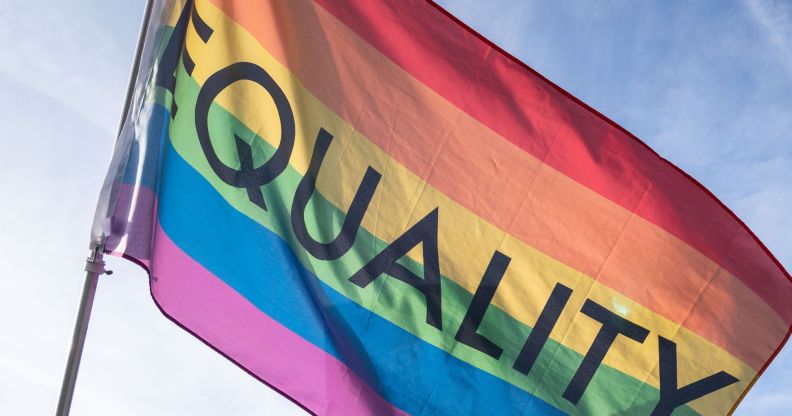Democrats and Republicans in Utah join up to pass conversion therapy ban: ‘Politics at its best’

Utah voted to codify the conversion therapy ban for minors. (Getty)
State lawmakers in Utah have unanimously approved a ban on barbaric and torturous anti-LGBTQ+ conversion therapy.
So-called conversion therapy is a discredited and often abusive practice used by family members, groups, or organisations that attempt to change an LGBTQ+ person’s sexuality or gender identity.
It has been banned in a number of states across the US but has yet to be made illegal nationwide.
Utah first implemented a ban, as an administrative rule, in 2020, following an executive order signed into law by then-governor Gary Herbert.
Negotiations between LGBTQ+ rights groups and Utah representative Mike Peterson helped to establish House Bill 288, which passed its final vote on Friday (17 February) and codifies the ban into permanent law if signed by governor Spencer Cox. The moderate Republican has signalled his support for the legislation.
While the ban only safeguards people under the age of 18 in its current form, therapists in Utah are to be issued guidelines for patients of all ages regarding conversion therapy and the bans in place.
“This is politics at its very best… when stakeholders from all sides come together, listen to each other, learn from each other and discover common ground,” Equality Utah executive director, Troy Williams, told FOX 13 News.
“We hope, in the future, lawmakers will continue that pattern.”
He added: “This was an extraordinary moment in Utah’s LGBTQ+ history. We had both chambers unanimously pass a ban on conversion therapy for minors.”
New Jersey became the first US state to implement a ban on conversion therapy, in 2013 – prior to same-sex marriage becoming legal in the country. California, Oregon and Illinois followed suit.
Last week, the EU commissioner for human rights, Dunja Mijatović, pushed for the swift ban of conversion practices in European countries.
In a report from 16 February, Mijatović wrote that organisations that profit from the barbaric practices have “no place in a human-rights-based society”.
He added: “These interventions continue to take place across Europe, often lawfully and commonly under the guise of medical or religious tenets.
“Despite the profound and long-lasting harmful effects that these practices can have, many victims are left with neither recognition of the harms that they have endured, nor redress. This must end.”
How did this story make you feel?

